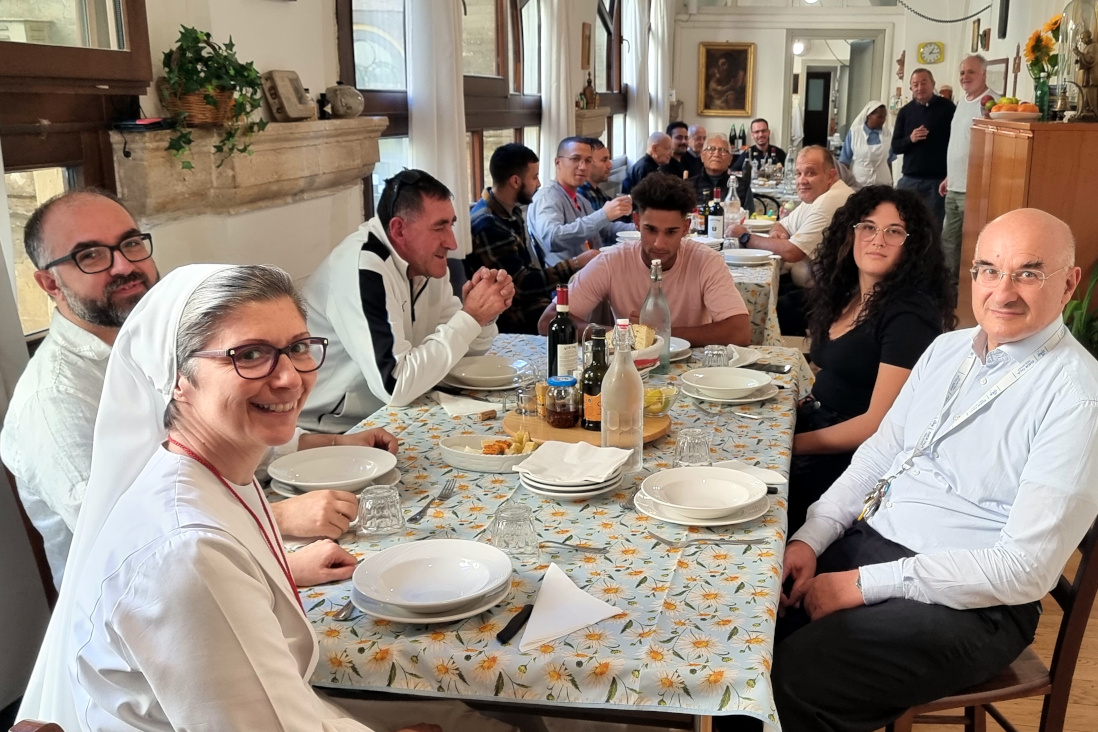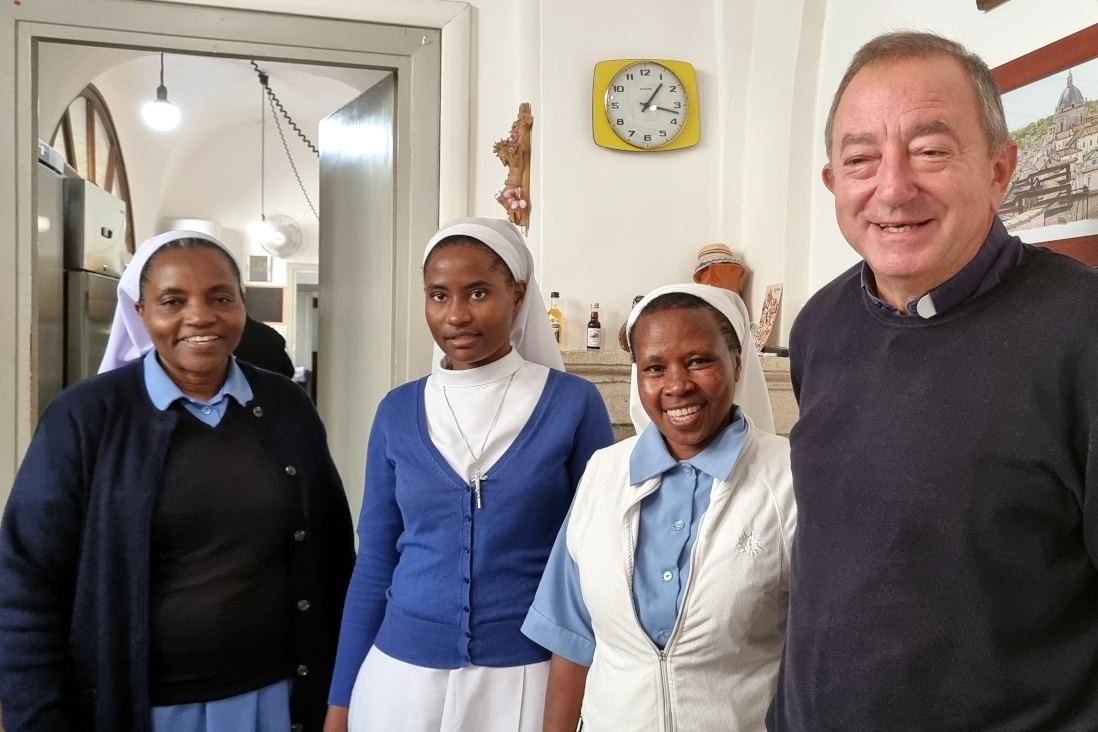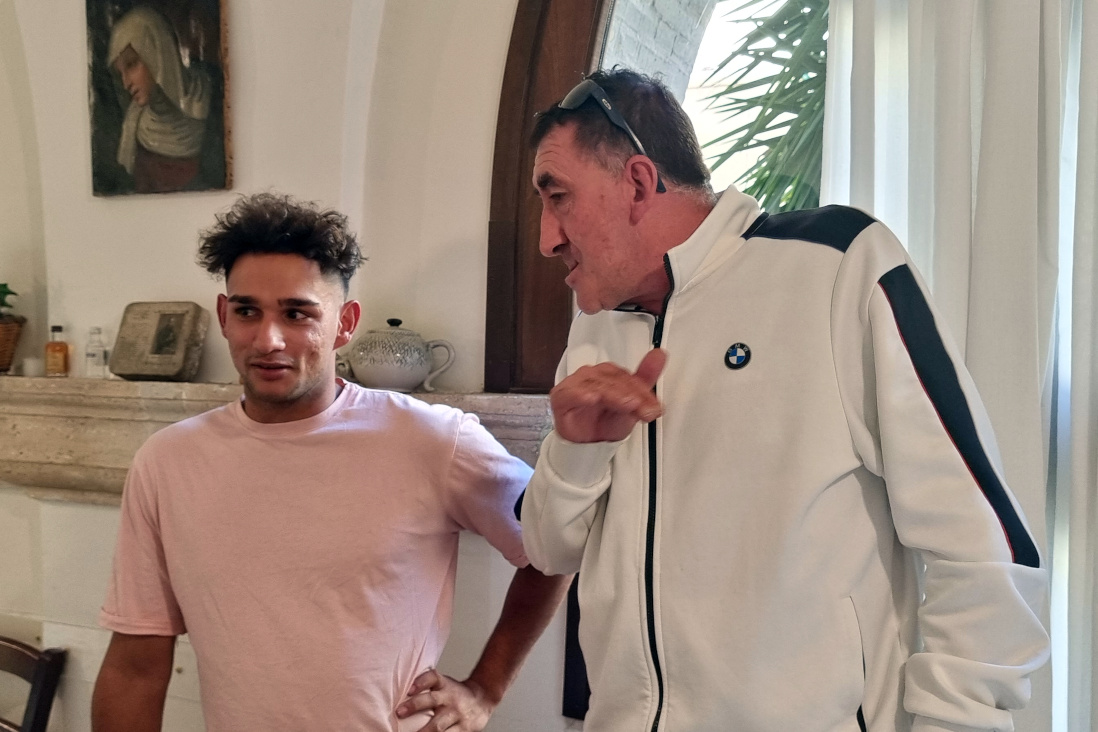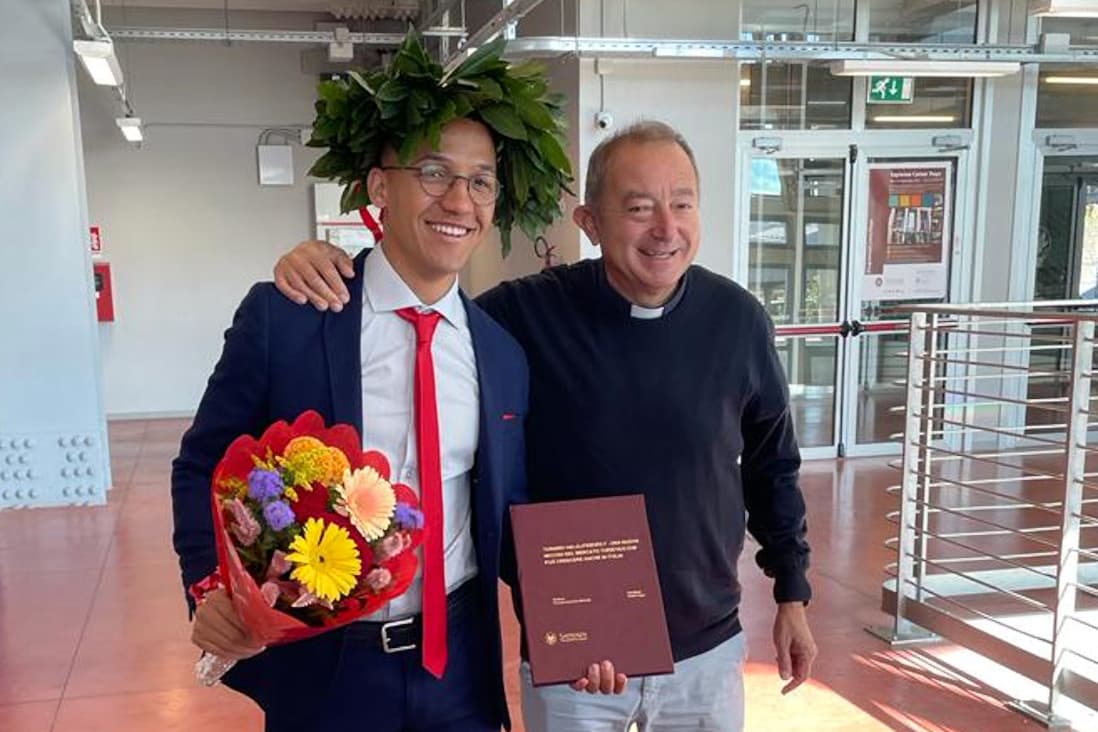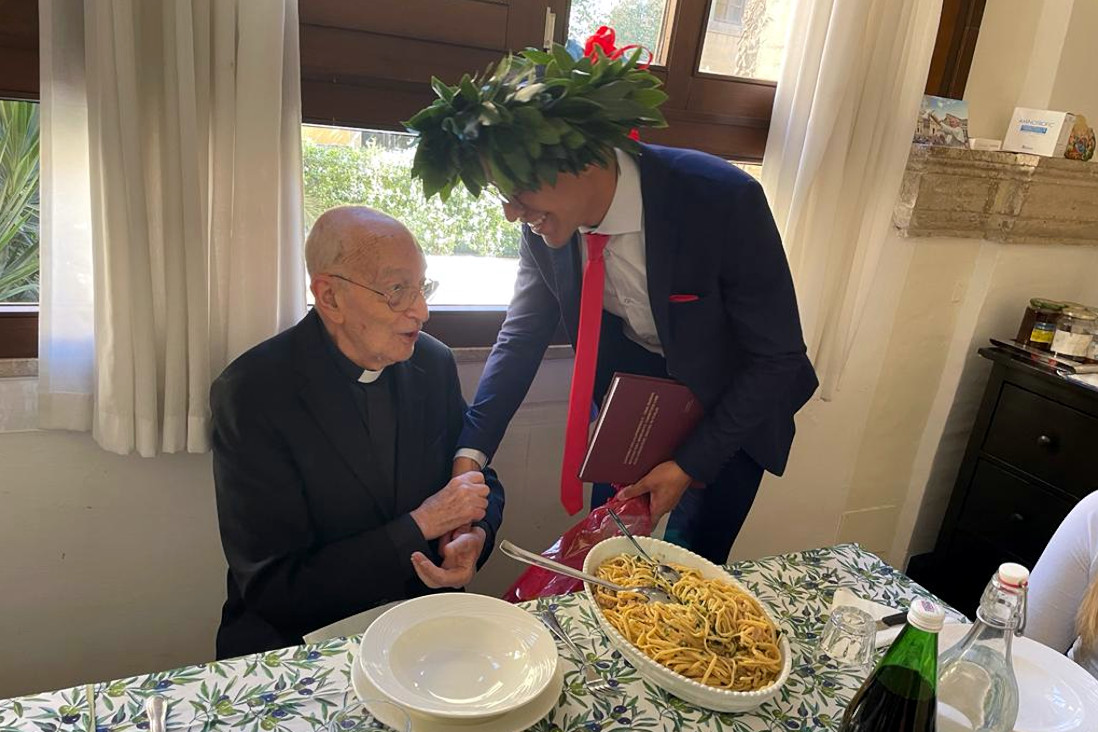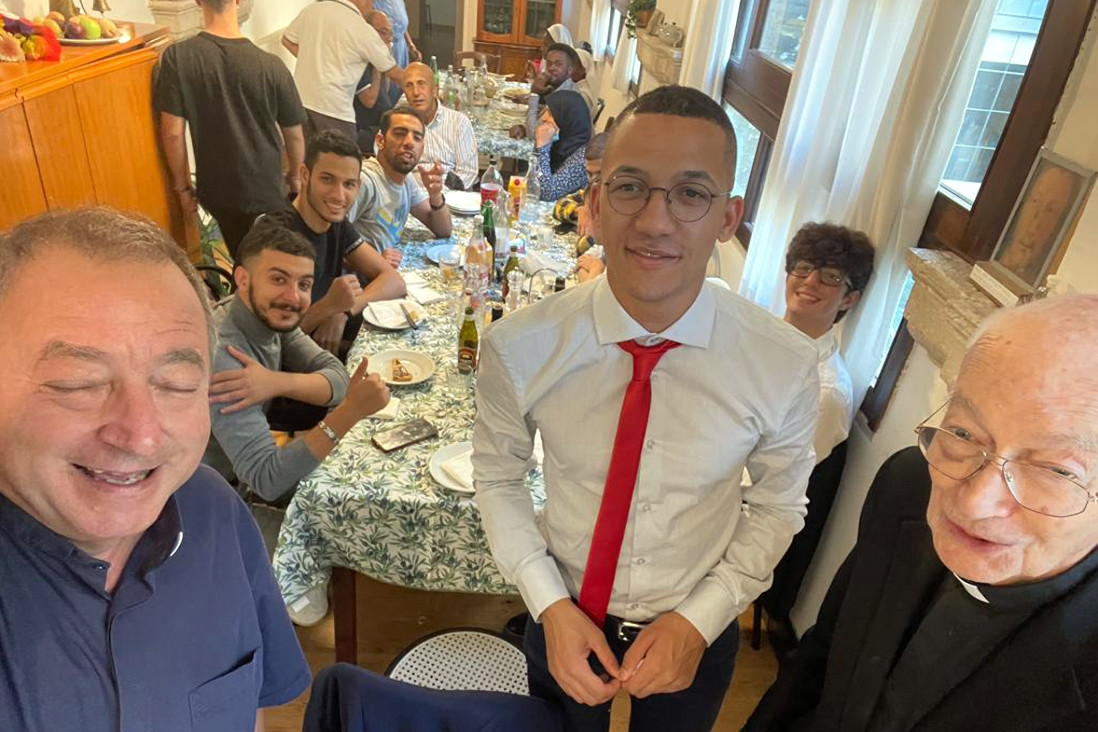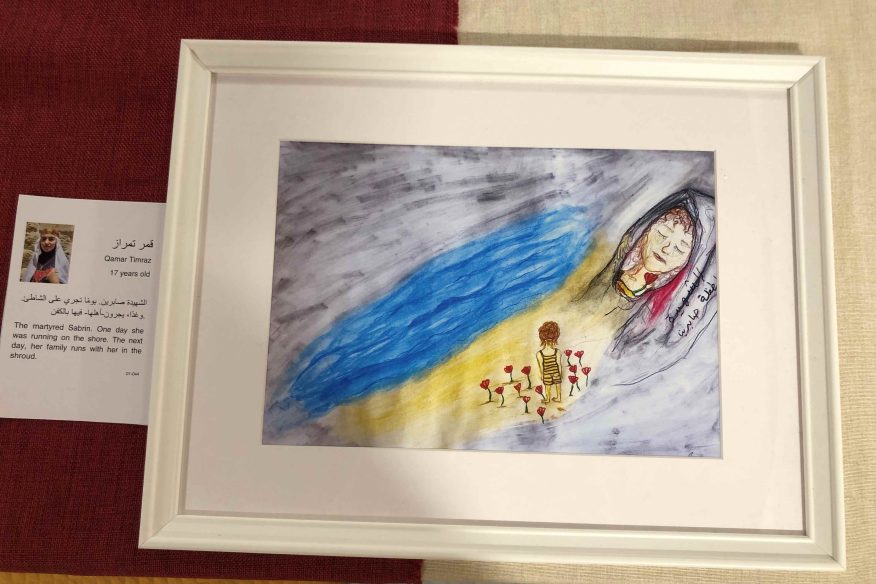That extraordinary ‘ark’ in the centre of Rome
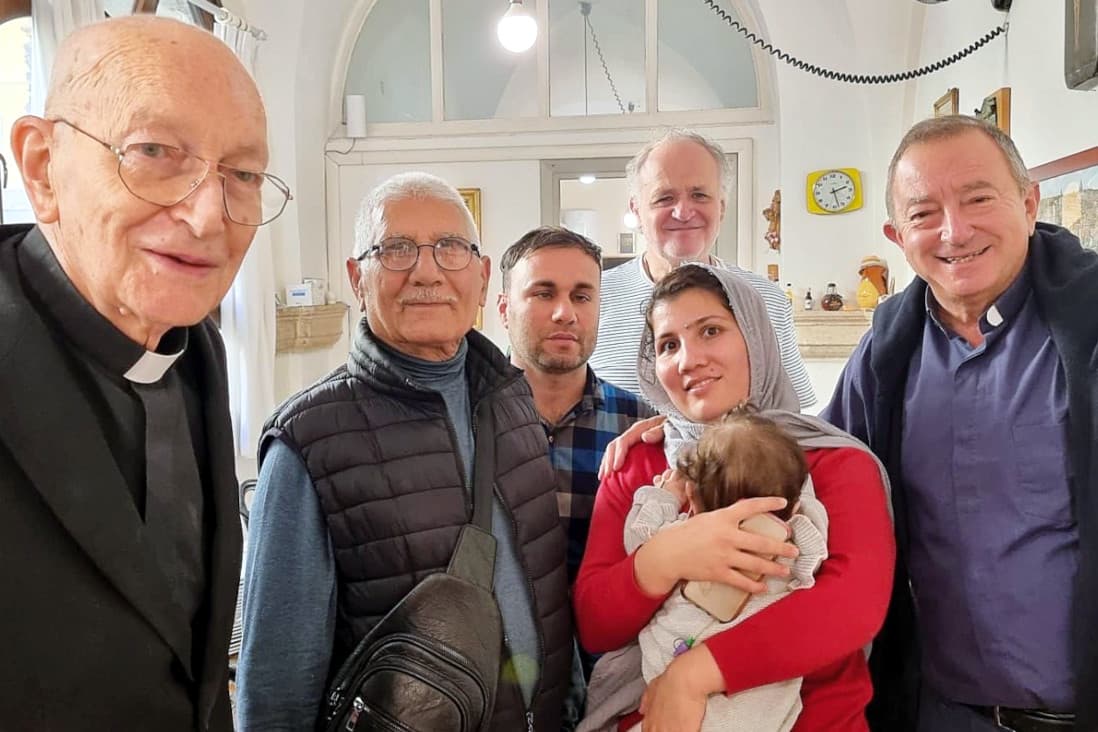
Via del Caravita 8/a, Rome. This is where the community of Jesuit fathers have ventured to respond to Pope Francis’ invitation in 2015, the year of consecrated life: “I expect from you concrete action to welcome refugees”.
Immediately that exhortation made headway and touched hearts. Existing living areas were refurbished and became the home of many. Young people and families in search of hope have entered through the doors of the community that are always open and found a home and a family. Some come from Syria, others from Morocco, Madagascar, and Afghanistan.
From the beginning, a small religious community of three sisters, the Evangelising Sisters of Mary, joined the fledgling community: two are from Uganda and one from Kenya. “Our charism is to serve,” Sister Buonconsiglio, 48, said “Through the collaboration with the Jesuit fathers we are led daily to listen to the poor, guide young couples to marriage, help people with various problems. We are very much aware of our motherly contribution in this large community”.
“The church has been given new life thanks to the quality of the celebrations and the joyful welcome of the sisters,” the Jesuit Fr Massimo Nevola, superior of the community discloses. “This humane contribution is appreciated by all”.
Many guests visit this large ‘ark’: students, religious, young people in discernment, and they are struck by the atmosphere of fraternity and simple welcome which is immediately recognisable.
From a place of welcome to a new pastoral ministry
Today the community consists of twenty people, eight of whom are Jesuits. Another form of hospitality within this place is the type of pastoral work that is offered.
“Fr Giuseppe Giordano is available for confessions and animates the prayer before lunch that is offered to the poor every Saturday at the Caravita canteen,” Fr Nevola explains. “Fr Athanase Rafanhantzoa is chaplain of the Malaysians in Italy. He welcomes many of them into the community spaces for talks, meetings, festivities and liturgies. Fr. Vincenzo D’Adamo started receiving tourists and pilgrims until midnight in the church of St. Ignatius during weekends and set up the Italian school for Ukrainian children who arrived at the beginning of the war. Fr. Carmelo Giuffrida is involved in teaching and welcoming boys from the adjacent Visconti Lyceum and often prepares dinner for groups of them. Fr Fabrizio Valletti has asked to reside in the community because of its welcoming atmosphere and its openness to the people of the area, as also did Fr Giancarlo Gola. Of course, the spaces are very limited,’ he explains, ‘we live closely side by side, almost daily. Sometimes it is difficult to welcome the various different particularities of the people and to concretely integrate them into society, but the community of fathers has kept going. Even the elders no longer complain of loneliness. In fact, we are an extremely rich house, with a hundredfold of experiences faced on a daily basis”.
Read the article (in Italian) on the Associazione Universale di Sant’Antonio website
